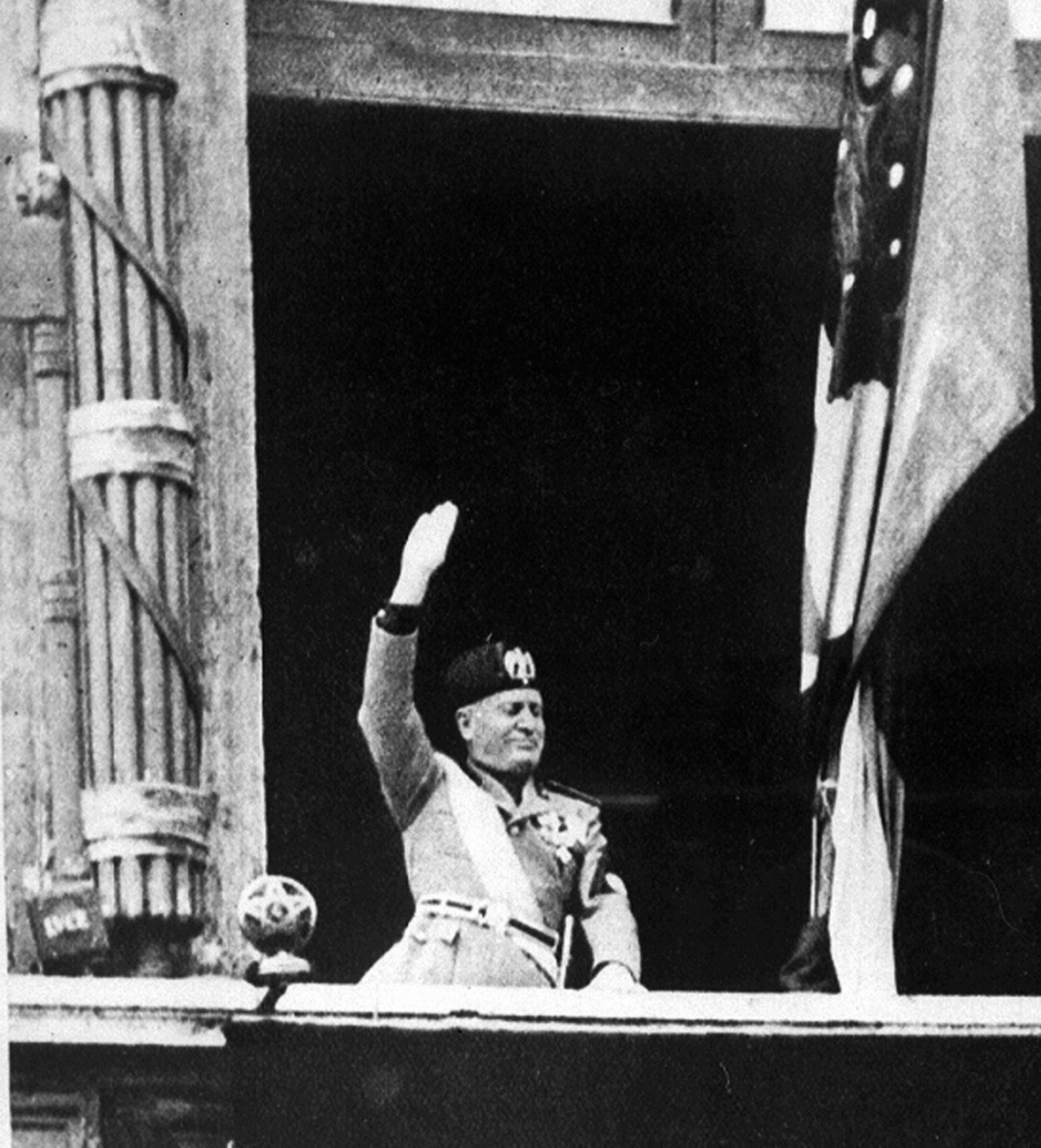
Mussolini’s Swiss doctorate allowed to live on

An honorary doctorate awarded to former Italian dictator Benito Mussolini will not be withdrawn by the University of Lausanne (UNIL) despite demands to wipe it from the records.
In 1937, Mussolini was awardedExternal link the doctorate “for having conceived and realised in his homeland a social organisation which has enriched sociological science and which will leave a profound mark on history”.
Now a commission set up to address the matter has found that the university “failed in its mission and academic values, which are based on respect for the individual and freedom of thought”.
But the experts concludedExternal link that rescinding the honour posthumously would give the impression that the university was trying to absolve itself of blame and brush its past mistake under the carpet.
Instead, the doctorate should stay in place to “serve as a permanent warning” to people and institutions of falling under the influence of ideological extremism.
The controversial doctorate has been at the centre of heated debate for decades. In 1989, UNIL refused to rescind the title but made public historical documents detailing the university’s decision to bestow the honour.
In 2020, the university set up a commission to examine the issue once again. Earlier this year, a leftwing group of politicians filed a motion in the cantonal parliament calling for the title to be officially revoked.
The commission released its findings in a report on Friday, which included a series of further recommendations. These included the proposal to set up a website to document the award of Mussolini’s doctorate, organise workshops in schools to highlight the impacts of fascism, fund research into totalitarian ideologies and to recognise the best research with an annual prize.
In an interview on the UNIL website, Rector Frédèric Herman said that the university’s “values are the opposite of fascism and we can never be too ambitious in defending democratic values and fighting to ensure that the mistakes of the past do not happen again.”
“To have withdrawn this title from Benito Mussolini would have removed him from the democratic debate, which is at the heart of the way this university functions.”
Swiss connections
Mussolini’s connection with Switzerland dates back to 1902 when he first travelled to the country as a young unemployed teacher looking for work. He survived as a labourer and frequented Socialist circles, where he began to get noticed as an orator and journalist.
In Lausanne he was arrested for vagrancy. Canton Bern also expelled him after inciting Italian workers to strike. The federal police kept an eye on him, considering him a dangerous agitator.
In 1904 he returned to Lausanne, where he enrolled at the university’s Faculty of Social and Political Sciences. He later returned to Italy in November of that year, thanks to an amnesty that prevented him being sentenced as a draft-dodger. Mussolini maintained close ties with canton Vaud and its capital, and with certain members of the Italian community.

In compliance with the JTI standards
More: SWI swissinfo.ch certified by the Journalism Trust Initiative































You can find an overview of ongoing debates with our journalists here . Please join us!
If you want to start a conversation about a topic raised in this article or want to report factual errors, email us at english@swissinfo.ch.